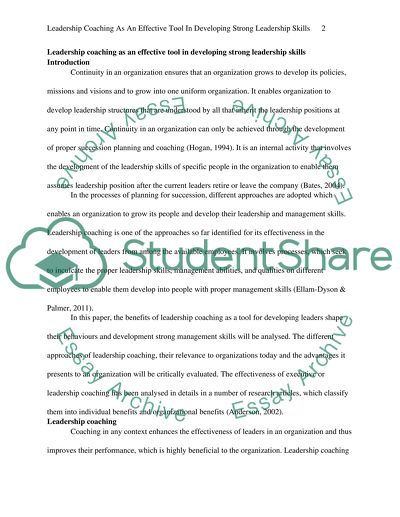Cite this document
(“Leadership Coaching As an Effective Tool in Developing Strong Essay”, n.d.)
Retrieved from https://studentshare.org/psychology/1489649-5-leadership-coaching-is-an-effective-tool-for-helping-leaders-to-develop-the-behaviours-required-to-manage-strong-performing-t
Retrieved from https://studentshare.org/psychology/1489649-5-leadership-coaching-is-an-effective-tool-for-helping-leaders-to-develop-the-behaviours-required-to-manage-strong-performing-t
(Leadership Coaching As an Effective Tool in Developing Strong Essay)
https://studentshare.org/psychology/1489649-5-leadership-coaching-is-an-effective-tool-for-helping-leaders-to-develop-the-behaviours-required-to-manage-strong-performing-t.
https://studentshare.org/psychology/1489649-5-leadership-coaching-is-an-effective-tool-for-helping-leaders-to-develop-the-behaviours-required-to-manage-strong-performing-t.
“Leadership Coaching As an Effective Tool in Developing Strong Essay”, n.d. https://studentshare.org/psychology/1489649-5-leadership-coaching-is-an-effective-tool-for-helping-leaders-to-develop-the-behaviours-required-to-manage-strong-performing-t.


